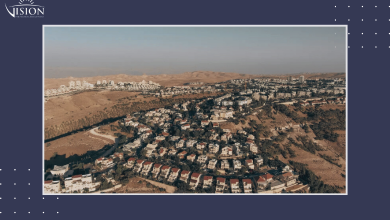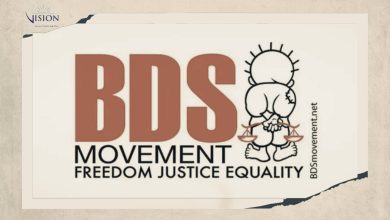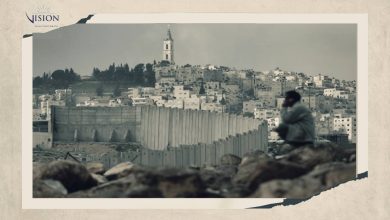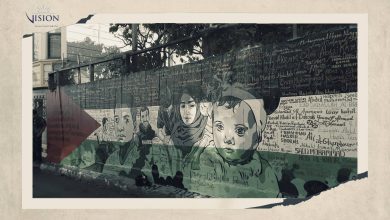The Monthly Skimm, January 2021: The Palestinian Elections, Fatah’s Biggest Electoral Challenge, Normalization and Israeli’s “Centcom” Membership
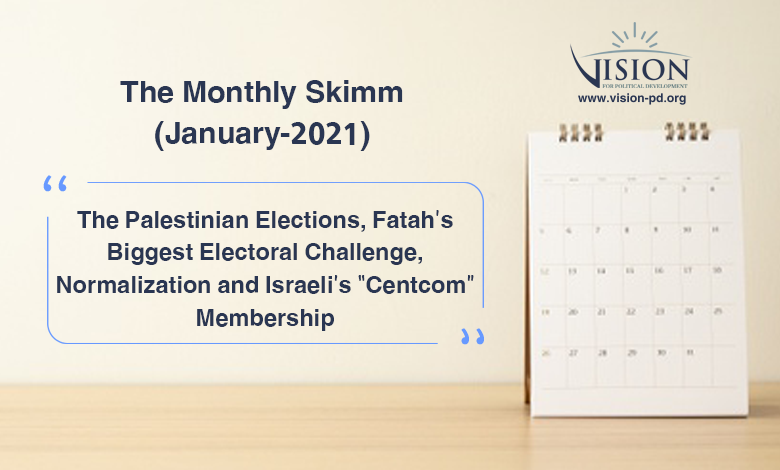
Mohammed Hasan
The Palestinian Elections; What Future is Beyond?
The upcoming Palestinian election is not likely to lead to reconciliation between Hamas and Fatah anytime soon. Moreover, the legitimacy of the election is uncertain, as the main players have not committed a free and fair election.
Both Hamas and Fatah are apparently unwilling to cede power in their respective territories regardless of the election outcome and this reduces the possibility of an honest election (Al-Omari, 2021). There is a big challenge ahead regarding the ability of the coming elected government to effect reconciliation between Hamas and Fatah, and to work without confronting the facts imposed by the hegemony of each power on the region they control (Kuttab, 2021).
The Divisions inside Fatah as an enormous Challenge to the Success of Elections
One considerable challenge confronting the upcoming Palestinian elections is found in the disunity inside of Fatah, where Marwan Albraghothi, Mohammed Dahlan, and Naser Al-Qudwa do not follow Abbas’s authority (Al-Omari, 2021).
Mohammed Dahlan is complicating options for Mahmood Abbas in the upcoming elections as he mobilizing some members of Fatah to be involved in an independent movement called the Democratic Reformist Current. This opposing reformist current has serious intentions of running their candidate in both the presidential legislative and National Council elections (Melhem, 2021).
Despite Abbas’s use of alleged corruption charges against Dahlan and Palestinian law disqualifies candidates with criminal records from running for political office, Dahlan’s Democratic Reformist Current announced its intention to resolve the issue on local and regional levels. Even if Dahlan was not able to find a way to run in the elections, his Democratic Reformist Current would nominate other candidates for the legislative and presidential elections (Melhem, 2021). Regardless of the scenario, this complicates the situation before Fatah, as Abbas’s wish is to run the elections with a single unified list.
Normalization as a Serious Ambitious Strategy and the Facts on the Ground
Despite the change in American leadership, Israel’s ambitious strategy to maximize the earnings of normalization with countries that have not recognized it yet, is increasingly going on. The relationship between Israel and the UAE will witness considerable bilateral rise in trade, business deals, and post-COVID19 investment (Otaiba, 2021).
In Saudi Arabia, statistics show that 41% of Saudis support the Abraham accords and consider it a positive development. This reflects the Saudi population’s divide in attitudes towards Israel as almost 51% of Saudis consider the agreement between the UAE and Israel as a negative development (Pollock, 2021).
Furthermore, Saudis no longer give high priority to solving the Palestinian-Israel conflict; to wit, only 28% of Saudis believe it is a top priority (Pollock, 2021). Moreover, there has been a decline is Saudi support for the Palestinian resistance movement in that only 11% of Saudis have a moderately positive opinion of Hamas.(Pollock, 2021).
As long as the current Saudi king is alive, full normalization between Israel and Saudi Arabia is going to be difficult to realize, in spite of the partial and hidden normalization and slight increase in openness among Saudis towards Israel (Otaiba, 2021).
In its ideological conceptualization of the republic, Pakistan is not likely to recognize Israel and normalize relations despite the pressure from the US and other nations (Dhume, 2021).
The Palestinians in Jerusalem and Abraham Records
It is argued that the Abraham Accords will consequently increase Palestinian utilities in Jerusalem as waves of Arabs will visit the city where 40% of the population is Palestinians (Otaiba, 2021). However, the question becomes to what extent do Palestinians in Jerusalem seek economic development without the realization of their political rights? Palestinians generally view the Accords as a means to circumvent around them.
Israel’s New Membership in the “Centcom” is a Tangible Change in the Region!
Militarily, Israel was not a part of the US Central Command (Centcom) in the Middle East as it included countries that did not recognize Israel. Under Trump’s administration, Israel achieved inclusion as a result of a wave of normalization. The involvement of Israel in “Centcom” will center its position in cooperation against any Iranian challenge; it will benefit her in intelligence sharing and security cooperation (Saab, 2021).
This can be a practical and tangible manifestation of the Israeli-Arab coalition against the so-called “the Iranian Threat”. The cooperation will not only be directed against Iran, but against military groups (i.e., Islamist groups) in the region (Orion, 2021) (Chorev, 2021). The million-dollar question: To what extent will this coalition target Hamas and the Hezbollah?
The Axis of Resistance
The martial resistance in Palestine may be negatively affected as one of its most significant tributaries to weapon smuggling (Iran-Sudan-Egypt-Gaza) is not able to function as before under the Al-Bashir’s regime (Ahmed, 2021). This is one of the reasons that Sudan is important to Israel and Hamas.
Don’t forget that the equation of power in the region has been changing because parts of the resistance faces a significant crisis. This Axis under the leadership of Iran is no longer as effective as it has become synonymous with social, economic and political ruin (Young, 2021).
What Options are still Available for the New Palestinian Generation?
Israeli policies and procedures on the ground left little option to the new generation of Palestinians, particularly after the recent normalization wave between Israel and some Arab countries. This would increase the possibility of a binational state for Palestinians (Young, 2021).
Palestinian Society’s Openness towards the Globalization under the Test
Considering the protest against the techno concert held in Maqam Nabi Musa by the Palestinian Sama Abdulhadi, observers show that there is a change in social norms in Palestinian society. Specifically, people increasingly reject “the others” who contradict local conservatism (Kuttab, 2021).
- The Monthly Skimm is a narrative brief of the political opinions and analysis conducted by considerable think tanks about the Palestinian-Israel conflict.
Reference:
Ahmed, N. (2021). Why Sudan Matters? Retrieved from Carnegie Middle East Center: https://carnegie-mec.org/diwan/83755
Al-Omari, G. (2021). Will the Palestinian Election Decree Produce Actual Elections? Retrieved from The Washington Institute: https://www.washingtoninstitute.org/policy-analysis/will-palestinian-election-decree-produce-actual-elections
Chorev, S. (2021). Why Does US Central Command Now Include Israel? Retrieved from Hudson Institute: https://www.hudson.org/research/16656-why-does-us-central-command-now-include-israel
Dhume, S. (2021). Islamabad Warily Weighs Establishing Ties With Israel. Retrieved from The Wall Stree Journal: https://www.wsj.com/articles/islamabad-warily-weighs-establishing-ties-with-israel-11610061640
Kuttab, D. (2021). Can elections end Palestinian division? . Retrieved from Middle East Institute: https://www.mei.edu/publications/can-elections-end-palestinian-division
Kuttab, D. (2021). Protesting against techno: How a concert revealed the state of Palestinian society. Retrieved from Middle East Institute: https://www.mei.edu/publications/protesting-against-techno-how-concert-revealed-state-palestinian-society
Melhem, A. (2021). Dahlan complicates Abbas’ plans for Palestinian elections. Retrieved from Al-Monitor: https://www.al-monitor.com/pulse/originals/2021/01/palestinian-elections-fatah-dahlan-unified-list-hamas.html
Orion, A. (2021). Winds of Change: Israel Joins the US Central Command Area. Retrieved from The Institute for National Security Studies: https://www.inss.org.il/publication/centcom/
Otaiba, Y. A. (2021). U.S. Policy Toward Arab States, Palestinians, and Israel: Ideas and Approaches for the Biden Administration. Retrieved from The Washington Institute: https://www.washingtoninstitute.org/policy-analysis/us-policy-toward-arab-states-palestinians-and-israel-ideas-and-approaches-biden
Pollock, D. (2021). Correction: New Saudi Poll Shows Sharp Rise in Support for Israel Ties, Despite Caveats. Retrieved from the Washington Institute: https://www.washingtoninstitute.org/policy-analysis/correction-new-saudi-poll-shows-sharp-rise-support-israel-ties-despite-caveats
Saab, B. (2021). Can US Centcom afford Israel? . Retrieved from The National News: https://www.thenationalnews.com/opinion/comment/can-us-centcom-afford-israel-1.1154208
Young, M. (2021). Dead Certainties. Retrieved from Carnegie Middle East Center: https://carnegie-mec.org/diwan/83688


